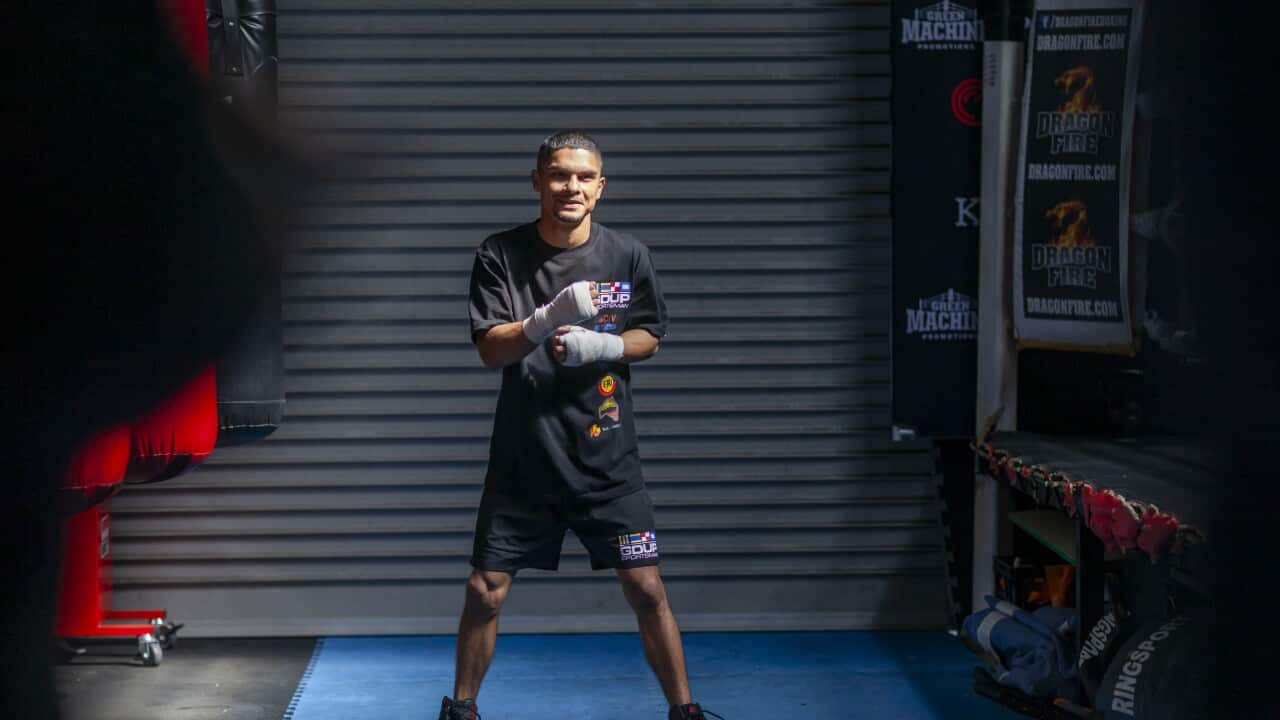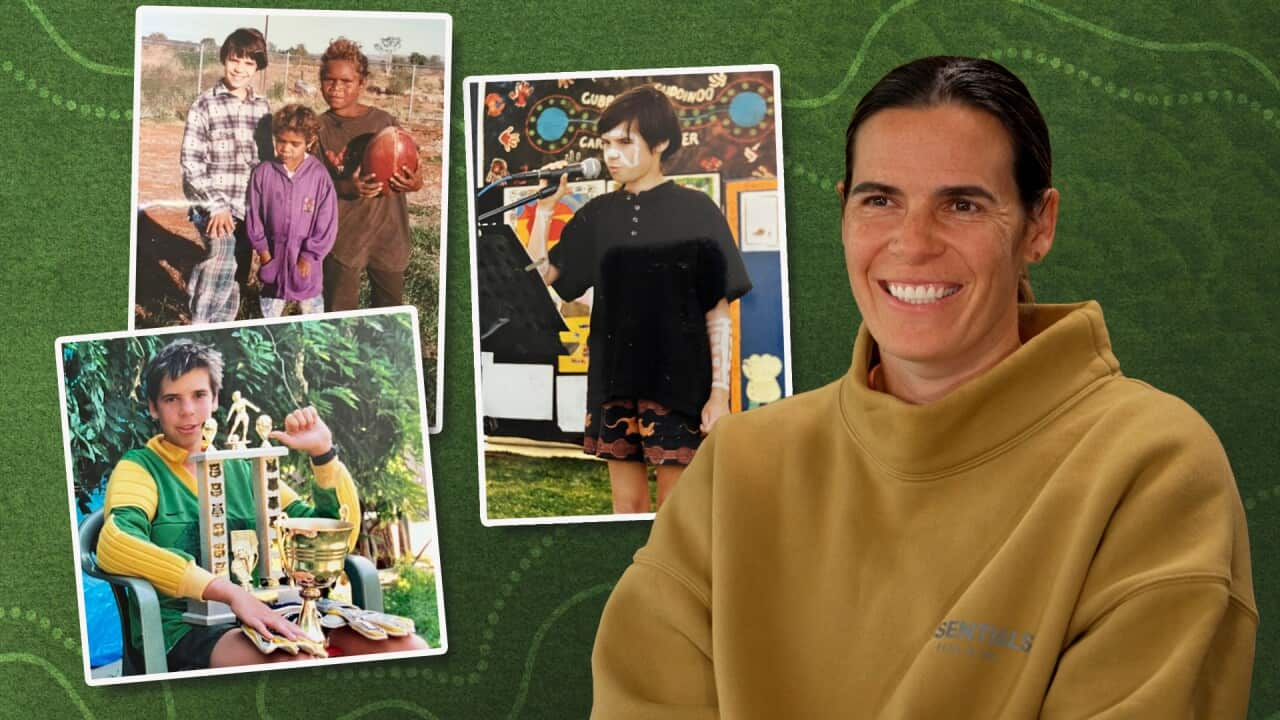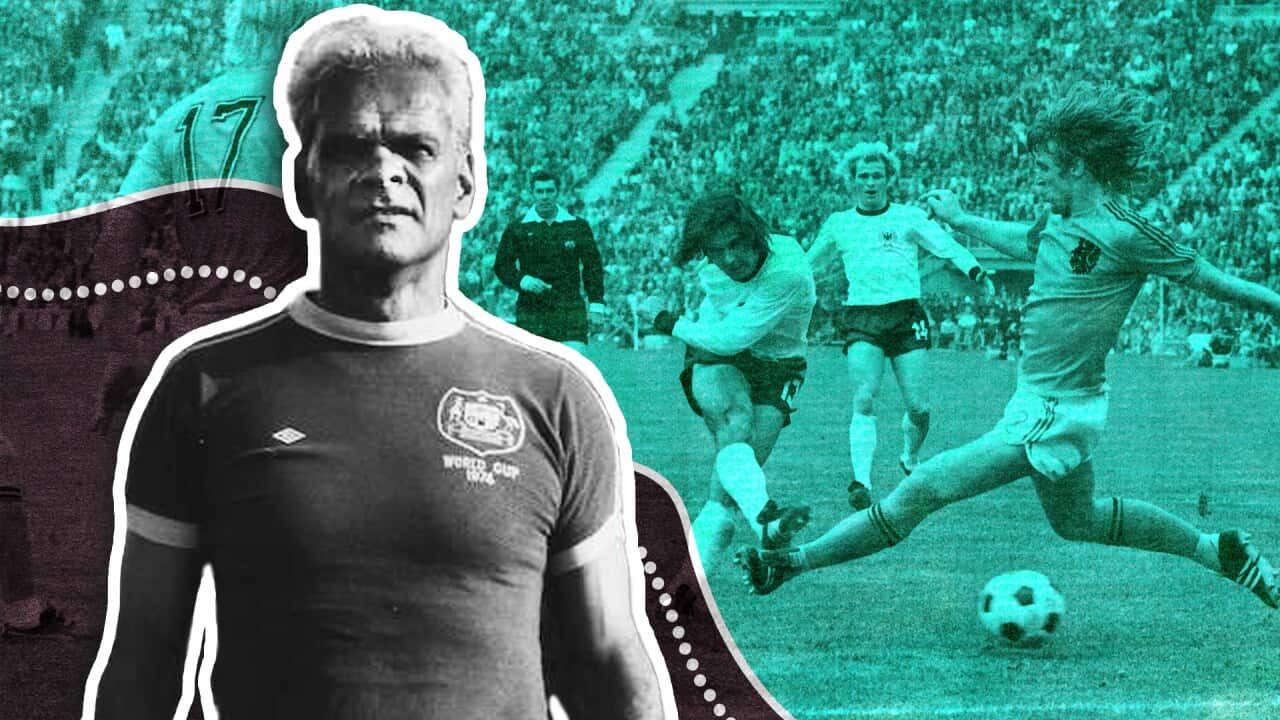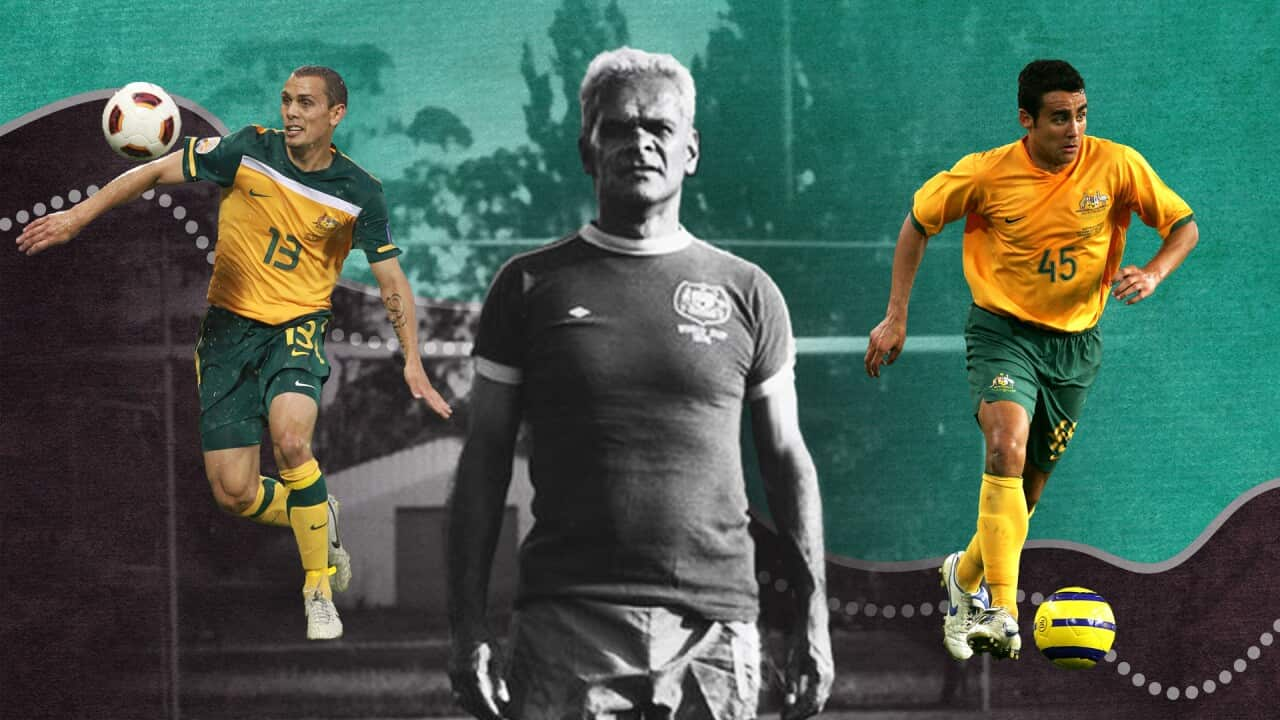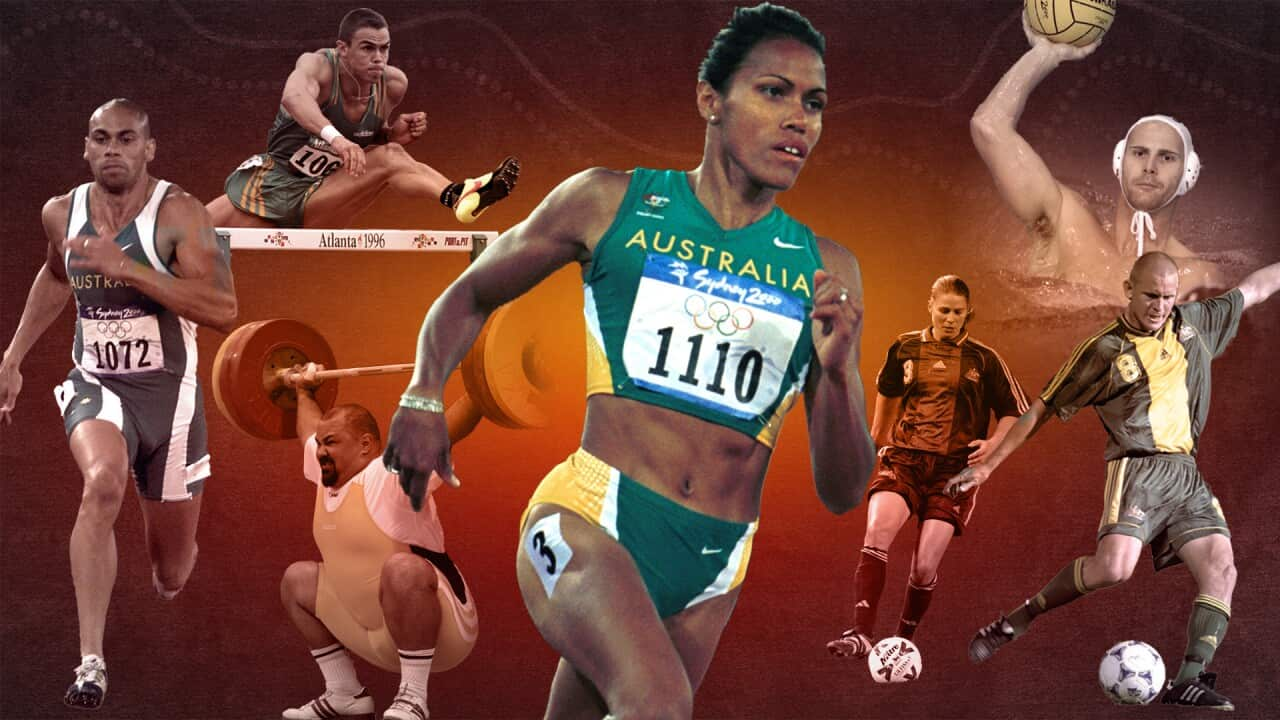

The Blak athletes who represented their people at the 2000 Sydney Olympics
On the 25th anniversary of the millennium Olympics, take a look at the sporting men and women who did their country and communities proud.
Published
Across athletics, soccer, weightlifting and more, First Nations athletes did their people and communities proud at the 2000 Sydney Olympics.
While Cathy Freeman's gold medal run is considered the defining moment of the Games, simply competing is a honour.
Here's every Blak athlete that was a part of "the best games ever".
Cathy Freeman - Athletics (400m, 200m, 400m relay)

The lighting of the sacred flame, which burns for the entirety of the Games, has been an event since the 1928 Olympics.
Beginning in the ancient (and original) site of Olympia in Greece, a flaming torch is borne across the world to the site of the events to come.
The final torch bearer is a closely guarded secret, often coming to symbolise the spirit of that year's Games as well as the country that hosts them.
So it was with Cathy Freeman, upon whom the hopes of a nation came to rest.

Amongst the wider social context of Aboriginal and Torres Strait Islanders' continuing fight for justice, and a federal government unwilling to engage, the sight of a young Blak woman representing the country was a powerful one for many.
From the moment she was revealed before a screaming stadium and millions of viewers across the world as the lighter of the Olympic flame, expectations were sky-high for her 400 metre run.
The Kuku Yalanji Birri Gubba woman, then 27 years old, had won silver at the '96 Atlanta Games: the Sydney Olympics were seen as her (golden) chance for the top prize.
Looked back on, her win seems inevitable: the lithe sight of Cathy gliding to a comfortable victory made it look easy.
In reality it was the culmination of years of work, an elite athlete at their peak.
The screams of thousands of spectators, echoed in living rooms around the country, were a release as much relief as elation, sharing in the glory.
James Swan - Boxing (featherweight)

James Swan is one of Australia's more decorated boxers, an icon of Indigenous boxing amongst a strong field that includes legends like Lionel Rose.
The bantamweight pugilist was born in Alice Springs and later spent time in South Australia.
Stream free On Demand

Lionel
Documentary • Biography • 2008
Documentary • Biography • 2008
Swan's love of boxing began as a 10-year-old child, partly as a reaction to being picked on by bullies. His prowess gained him respect.
"I'm a sportsman," he said.
"I don't like wanting to fight people, because it causes bad feelings ... but when it's in a boxing ring, I'll tear you up!
"I love it."
He won bronze medals at the both the '94 and '98 Commonwealth Games.
During the 1999 Olympics Test Events, something of a dress rehearsal before the Games proper, Swan took gold in the 57kg event.
He has been inducted into the Aboriginal and Islander Sports Hall of Fame.
Kyle Vander-Kuyp - Athletics (110m hurdles)

Worimi Yuin man Kyle Vander-Kuyp has held the Australian record time for the 110m hurdles for 27 years.
During his career he stacked up 12 senior Australian titles, and travelled around the globe for Commonwealth Games and World Championships in Malaysia, Sweden (where he set his record of 13.29 seconds) and Canada.
Vander-Kuyp competed at the '96 Olympics, becoming the first to represent Australia in the 110m hurdles in 44 years, and repeated the feat at the 2000 Games.
A member of the Aboriginal and Islander Sports Hall of Fame and the Australian Olympic Committee's Indigenous Advisory Committee, Vander-Kuyp is a powerful advocate for Blak sport.
"I want doors to keep opening," he said.
"I want opportunities to keep happening for our young generations."
Brad Hore - Boxing

A dual Olympian and Commonwelath Games boxer, Dunghutti man Brad Hore's dreams of winning gold at Sydney were dashed by a teenage growth spurt.
18 years old at the time of the 2000 Olympics, a sudden increase in height put him in the wrong weight category, an essential criterion of boxing.
"Fast forward, and I made the Sydney team at the age of 18, but to me, it was a nightmare," he said recently.
"I failed to make weight, and I got disqualified, so it was like a big bad dream, but it made me the person I am.
"I got myself up and trained so hard for the next four years to make Athens, and I didn't call myself Olympian until I went to the Athens Olympics."
Hore has added plenty of strings to his bow since: a First Nations Capability Officer Australian Sports Commission, motivational speaker, Indigenous Olympic Advisor.
Now an accomplished artist, he paints works from his home on the Sunshine Coast.
Bridgette Starr - Soccer

Another illustrious member of the Aboriginal and Islander Sports Hall of Fame, Bridgette Starr played defender for the Matildas at the 2000 Sydney Olympics.
She holds a special place in history as the first Indigenous woman to play for Australia at the World Cup and the Olympics.
First selected as a teenager, Starr played 53 full international games over an eight-year career, making her one of the most capped Matildas players in history.
More than 85,000 people attended the three games played by the Matildas over the Olympics, the best attendance until the 2023 women's World Cup.
A daunting 3-0 loss to the powerhouse German team occurred before the Games had officially opened (a quirk of Olympic soccer, to fit in all the games), followed by a draw with Sweden and a close 2-1 loss to Brazil.
Anthony Martin - Weightlifting (super heavyweight)

Anthony Martin holds a place in history as the first Indigenous weightlifter at any Olympics.
Spending his youth in Queensland, he became the state's Schools Weightlifting Champion at just 15 years old in 1994.
He is another member of the Aboriginal and Islander Sports Hall of Fame, winning national championships and international medals.
At the 1996 Klosterneuburg Cup in Austria, Martin won the under 18 championship (over 108kg).
A scholarship led to his attendance at the Olympic Training Centre in 1997, and he became Aboriginal and Torres Strait Islander National Junior Sportsman that year.
He placed 18th at the Sydney Olympics.
Daniel Geale - Boxing (welterweight)

Just nine years old when he first donned the gloves, palawa man Daniel Geale's talent saw him competing at the 2000 Olympics at just 19.
Two years later, Geale won gold at the Commonwealth Games in Manchester for his weight division, and went on to hold titles for several boxing organisations, including the International Boxing Organization, World Boxing Association and International Boxing Federation.
A world champion, Geale is another member of the Aboriginal and Islander Sports Hall of Fame, enjoying for the majority of his career a near-unblemished record of fighting wins.
Just two years ago, he became the 12th Indigenous person inducted into Australia's boxing Hall of Fame.
A father of three, Geale now also helps coaching the next generation of fighters.
"I love it ... there's a bunch of good fighters and young people coming through," he said.
"I definitely miss being in the ring ... everything you get out of it.
"But I also know how hard it is, how much sacrifice is involved."
Kasey Wehrman - Soccer(oos)

Socceroos midfielder Kasey Wehrman remembers the 2000 Olympics clearly.
"We had 95-odd thousand people at the MCG. The electricity was buzzing through your body," he said.
"It's hard to describe the sensation you get going out there.
"It's still a regret to this day that we didn't do better."
In an electrifying game against Nigeria, the Socceroos were down 2-0. After scoring one goal, the Socceroos were bouyed by the home crowd.
Wehrman went on to score another goal, drawing the team level with Nigeria to raucous screams.
"Now and again my missus will bring it up," he said.
"It's nice to remember it ... I remember celebrating."
Under his jersey, the midfielder had donned another shirt with the words "Hello to Cloncurry", his home town in Queensland.
"I don't know why I did it. I'd never done it before, never did it after. And I scored that day."
Unfortunately, Nigeria scored a late third goal to knock Australia out of the Olympics.
Nova Peris - Athletics (400m, 400m relay)

Nova Peris became the first Aboriginal person ever to win an Olympic gold medal with her efforts in the women's hockey team at the '96 Atlanta Games.
By 2000, she had turned her sights to athletics, becoming one of the very few people to reach the Olympic level in different disciplines.
She also had the honour of beginning the Olympic torch's relay through Australia. Having reached our shores from its outset in historic Olympia, the torch began its 100-day relay through the country at Uluru, in the hands of Peris.
"I had made the decision to run with no shoes on and [an Elder] said 'No shoes Nova', and I said 'No, a sign of respect for this sacred country,'" the Gija Yawuru Gagudju woman told NITV.
Peris ran a 1.4km stretch at the base of Uluru with her then 10-year-old daughter Jessica, who Peris said she had to hide before the moment came.
"The rules were no one is to run with the Olympic torchbearer," Peris said.
"Try telling that to a 10-year-old, who said 'I'm running with you mum.'
"That was just a phenomenal moment," she said.
Peris reached the semi-finals of the 400m and placed fifth with the other members of Australia's 400m women's relay team.
Patrick Johnson - Athletics (100m, 200m, 100m relay)

A Kaanju man from Far North Queensland, Patrick Johnson is the fastest man in Australian Olympic history.
It's a record he's held now for 22 years, achieving a 9.93-second 100m run in Mito, Japan in 2003.
His talent first spotted at the '96 Australian University Games, Johnson became a Commonwealth Games medal winner, taking out a bronze in the 100m relay in 2002.
Despite this, and his status as a dual Olympian (having also competed at Athens in 2004), Johnson says the title never sat easy with him.
“I never saw myself as an athlete, I saw myself as a person,” he said.
“Who I am is around being back on Country, back in the ocean, back to connecting to Mother Earth and my sense of belonging.”
Nathan Thomas - Water polo

Nathan Thomas is another Aboriginal and Islander Hall of Fame member.
A Tamworth boy, he played over 300 games for the national water polo side, becoming the first Indigenous person to do so.
The 2000 Olympics crew put in a valiant fight, making it all the way to the quarter finals, but a 3-7 loss saw them knocked out.
He went on to captain the team at Athens in 2004.
Those exploits saw him also inducted into the Water Polo Hall of Fame in 2023.
Thomas followed the footsteps of many great athletes and turned his attention to coaching after his competitive career, helping the younger polo players of Tamworth starting out.
He serves as co-chair of Water Polo Australia's Reconciliation Action Plan working group, and is also on the Australian Olympic Committee’s Indigenous Advisory Committee.
Henry Collins - Boxing (light-welterweight)

Henry Collins was one of the fantastic four, the Indigenous boxers who qualified for the 2000 Olympics.
An 18-year-old Collins began boxing with his brothers and cousins in Eidsvold, rural Queensland.
“They were looking for fighters so we all went down and had a go. We were sick of playing football all the time!" he said.
He won four state titles before a move to the Red Centre, Alice Springs, in 1995.
For a boy from the outback, competing at the Olympics was a dream come true.
“I can’t really explain the feeling,” said Collins in 2007.
“It was a real experience to be able to perform at the highest level possible.”

